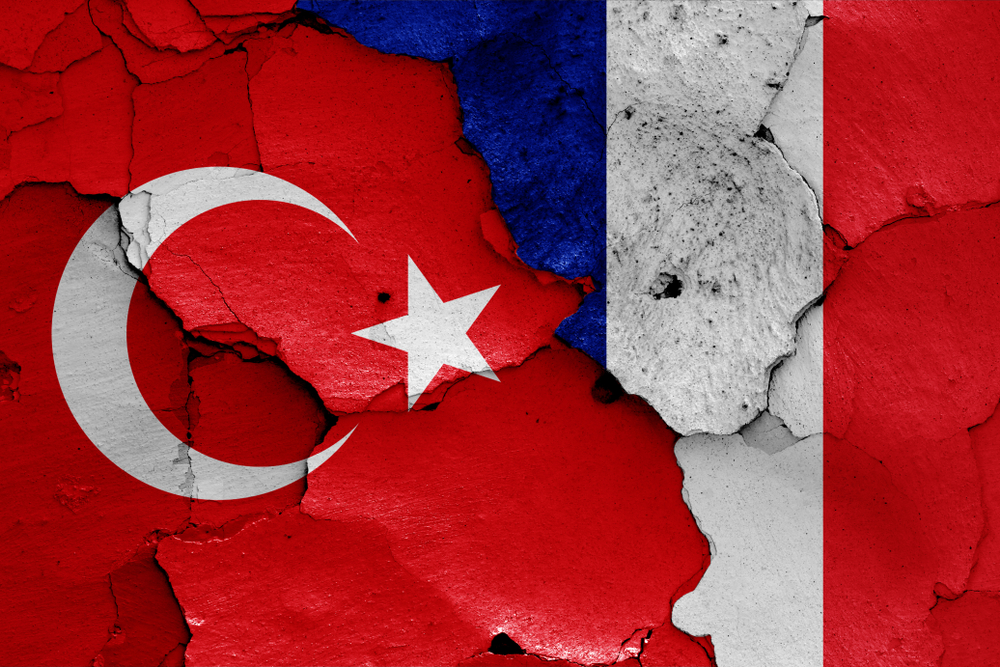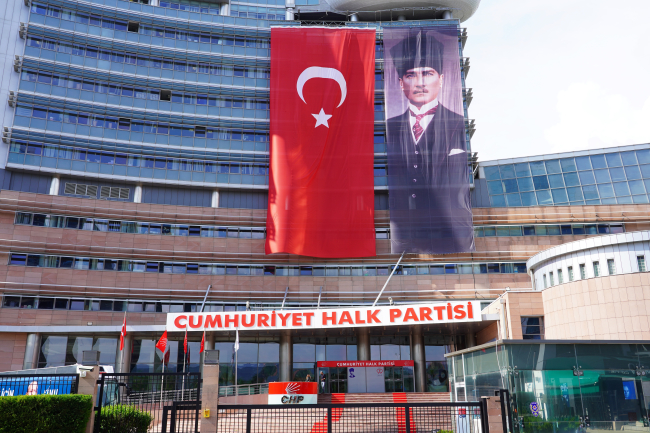Is Escalation Between France and Turkey in the Middle East and Beyond Inescapable?

In recent years, France and Turkey have been on opposing sides relating to Middle East concerns.

The countries’ disagreements over situations in Syria, Libya, the Eastern Mediterranean, and lately the Caucasus, have escalated significantly, generating fears of a proxy conflict with direct military confrontation between the two North Atlantic Treaty Organization (NATO) members. Attempting to rally widespread European support, France assertively challenges the Turkish “neo-Ottoman” ambitions; while Paris is anxious of Ankara’s acts outside of Paris’s expectations for a historically narrowly defined Turkish national interests. In the medium-term, the two countries appear to be testing each other to redefine their respective zones of influence, adapting their foreign policy objectives in the turbulent dynamics of the post-Arab Spring era. This power competition resonates domestically, as both the French and the Turkish public are receptive to the developing negative narratives of “the other.”
All rights reserved to GCSP
This content is available in English on Geneva Center of Security Policy website
This content is available in Arabic : هل التصعيد بين فرنسا وتركيا في الشرق األوسط وخارجه حتمي؟

Available in:
Regions and themes
Share
Related centers and programs
Discover our other research centers and programsFind out more
Discover all our analyses
RAMSES 2025. Between Powers and Powerlessness
Never before have there been so many powers able to upset the international balance of power, and never before have the dominant powers seemed so powerless to counter the fragmentation of the world.
Out of Thin Air but More than a Mirage: The Politics of Saudi Arabia's Nascent Music Industry
This study critically examines Saudi Arabia’s nascent music industry, which is promoted as a key element of Vision 2030, Crown Prince Mohammed bin Salman’s strategic framework to diversify the kingdom’s economy. It explores how state-led investments in music and entertainment intersect with authoritarian governance. The author neither dismisses these investments as conspicuous spending nor reproduces an alarmist narrative of impending cultural imperialism. The article takes a political sociology approach to understand how Saudi entertainment plans consolidate domestic power and reshape regional cultural landscapes.
Hostage diplomacy of the Islamic Republic of Iran. The case of Europeans detained in Iran
The so-called hostage diplomacy of the Islamic Republic of Iran refers to a political and diplomatic strategy in which Tehran uses the detention of Western nationals, dual citizens, or Iranian citizens residing in Europe, Australia, or the United States as leverage in diplomatic negotiations. This practice aims to exert pressure to secure political, economic, or diplomatic concessions as part of Tehran’s asymmetric response strategy. Hostage diplomacy remains a controversial yet effective tool from the perspective of the Islamic Republic of Iran, given its context of economic sanctions and diplomatic isolation.
Is the Republican People’s Party (CHP) Rising from the Ashes?
The victory of the CHP [Cumhuriyet Halk Partisi, Republican People’s Party] in the Turkish municipal elections of March 2024 firmly established it as the leading party of opposition to the Islamic-conservative AKP [Adalet ve Kalkınma Partisi, Justice and Development Party], which has been in power since 2002.









